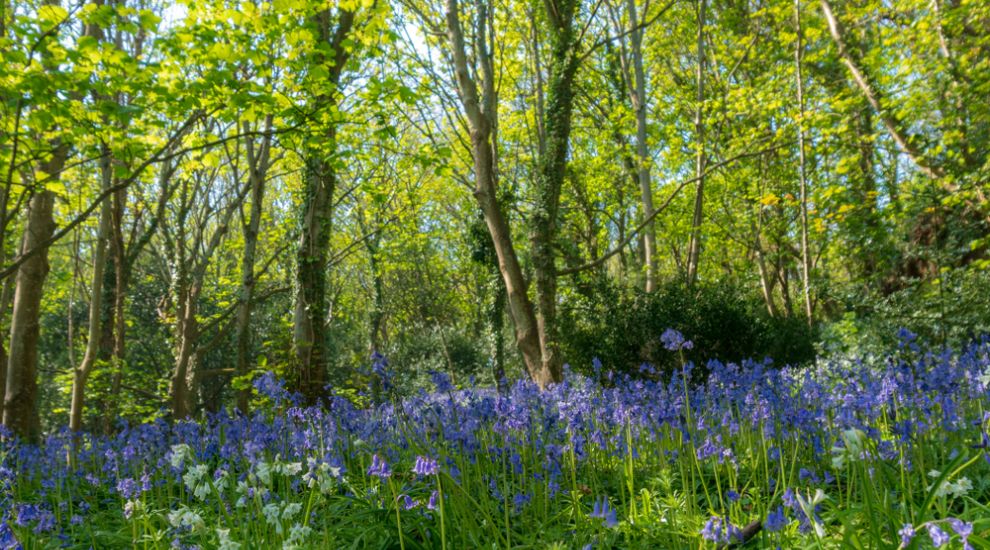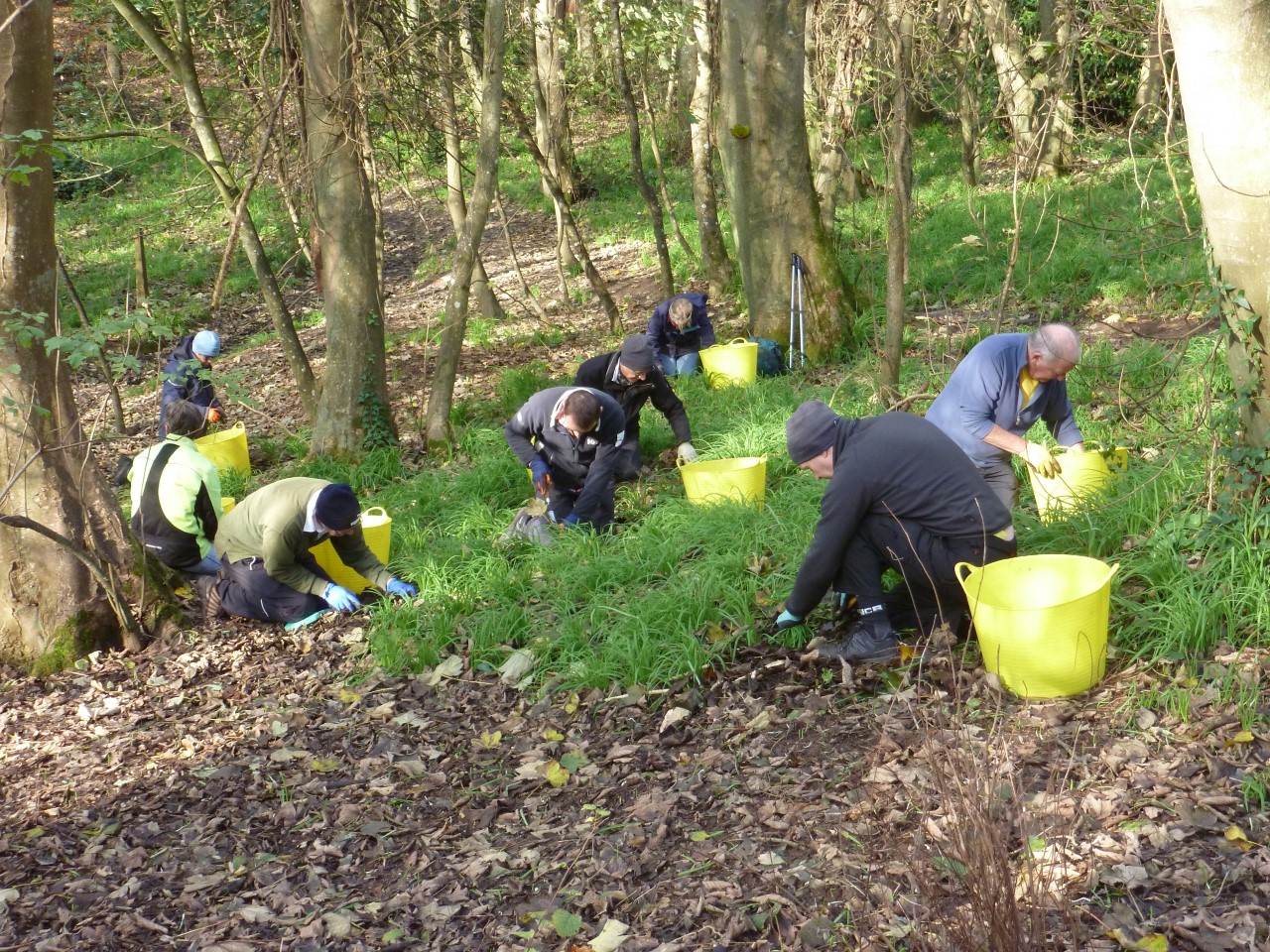


A controlled trial to remove thousands of invasive plants that threaten native species in Bluebell Wood has been hailed as a success.
Guernsey Conservation Volunteers feared that if nothing was done to protect bluebells in the area the wood would “eventually become a carpet of white flowers”, thanks to the highly invasive and fast-spreading Allium triquetrum.
The non-native plant is also known as three-corned leek, stinking onions, or wild garlic. GCV says bluebells are being outnumbered by stinking onions in some parts of the wood.
An agreement was struck last year between the charity and the States’ land management services for volunteers to go in and remove bulbs from a small area. Work began in November, noted as a good time to start as nascent stinking onions are emerging while bluebell leaves are undeveloped.
Given the success, ACLMS and GCV will work this autumn to continue work to remove the invasive species from bluebell-dense areas of the wood to allow those to spread.
Five separate sessions saw three tonne bags worth of the white flowered plants removed over 150 hours.
Bluebell Wood is designated as a site of special significance, and so care was taken to improve rather than worsen the area while removing the species.
In partnership with the States of Guernsey, @GsyConservation have removed thousands of 'stinking onions' as part of a promising trial to help native bluebells against the threat of non-native invaders.
— States of Guernsey (@Govgg) April 20, 2023
Take a look at the results of the trial so far below https://t.co/nFzn7D3Hej
GCV had to wait until this spring to see the fruits of their labour. They were “delighted” to see bluebells appearing in large numbers in the area they had toiled.
Angela Salmon, Operations Director for GCV, said an enthusiastic team regularly work to remove invasive species from the natural environment, such as cape ivy and sour fig, and now stinking onions too.
“We are thrilled with the success of this trial in Bluebell Wood, and we plan to continue working, in partnership with the States, on this site for many years to come. It’s a big challenge as Stinking Onions are dominating many areas but if we do nothing, we will lose Bluebell Wood for future generations,” she said.
Jim Robinson, Director of Natural Environment at the States , added: “We are excited with the results of this trial which are looking very promising, although it may be several years before the full impact is seen.
“Given the sensitivity of the site we are really pleased that GCV are using their expertise and knowledge to tackle the invasive plant in this iconic wood. We are asking the public to play their part by sticking to the paths all year round and not to remove Stinking Onion themselves as, if not done carefully, it may have a negative impact on the Bluebells too.”

Pictured: Volunteers carefully removing bulbs in the woods. Credit: GCV.
In the run-up to spring, Ms Salmon visited primary schools and held talks to encourage responsible enjoyment of the woods. She also explained the problems caused by invasive species.
Details of upcoming work parties to remove stinking onions from the woods will be released later this year for those wishing to take part.
Each part of a stinking onion is edible, but care should be taken if foraging the plant for eating – the flower stalk has a distinctive triangular shape.
Comments
Comments on this story express the views of the commentator only, not Bailiwick Publishing. We are unable to guarantee the accuracy of any of those comments.